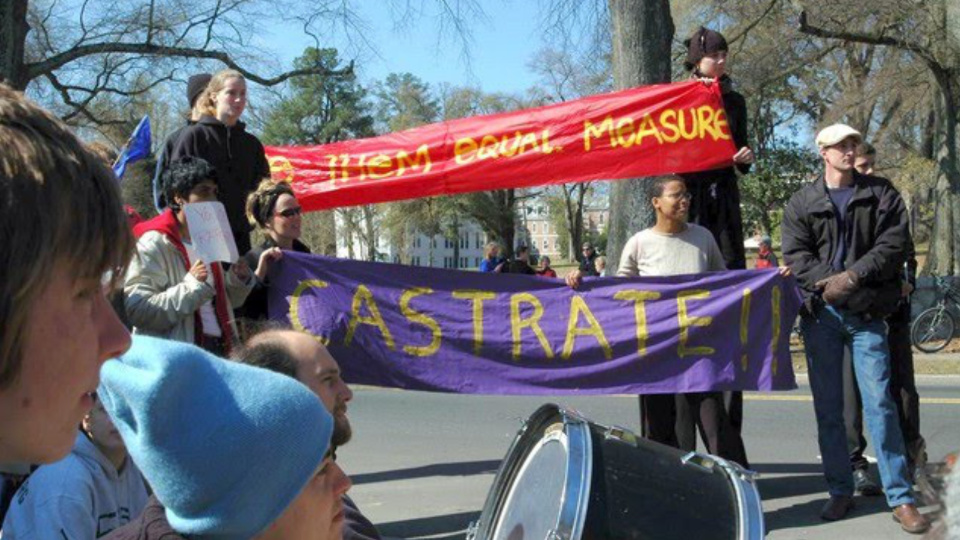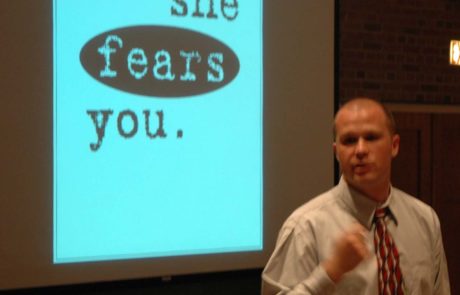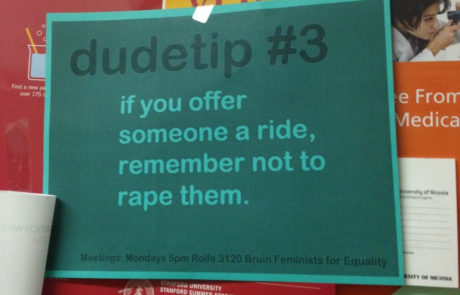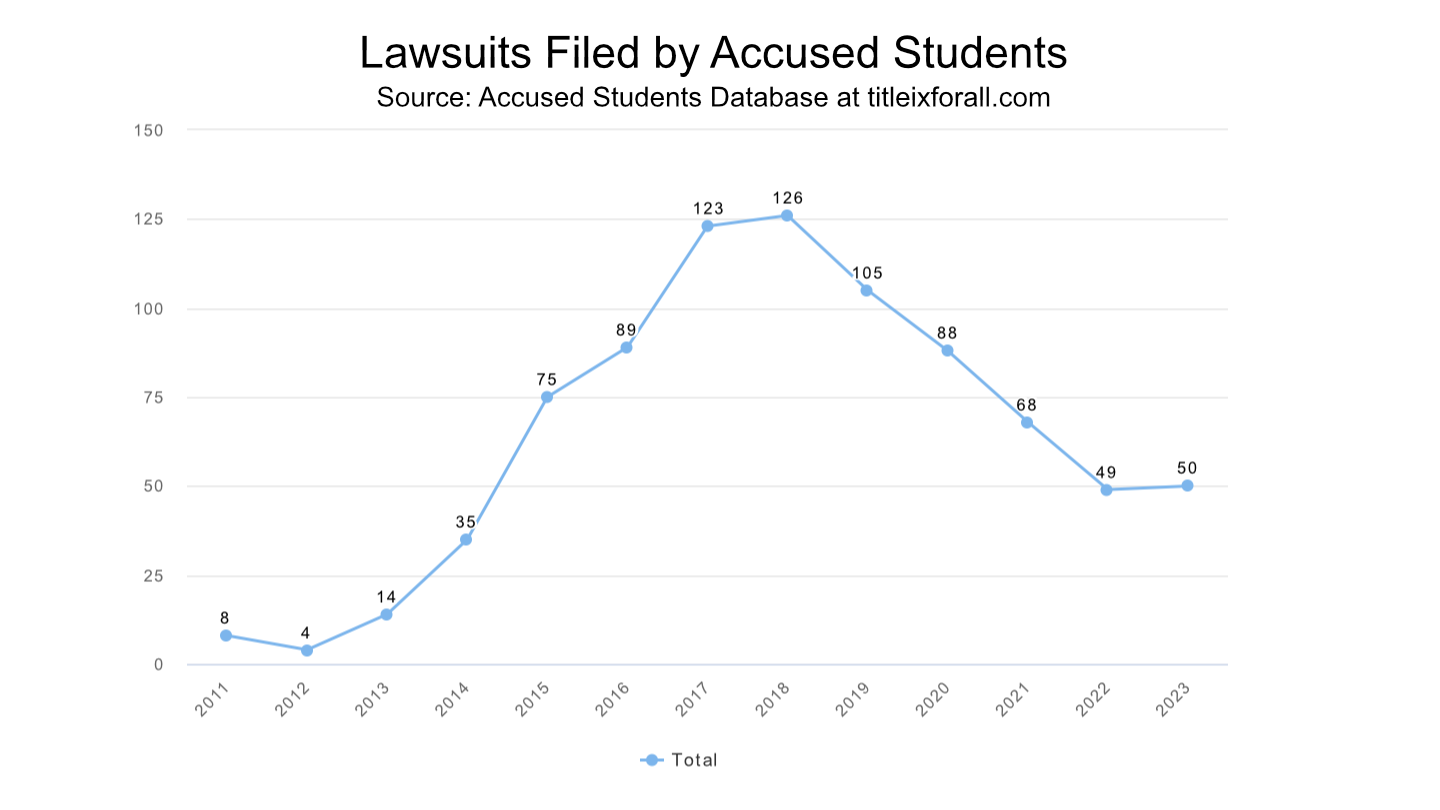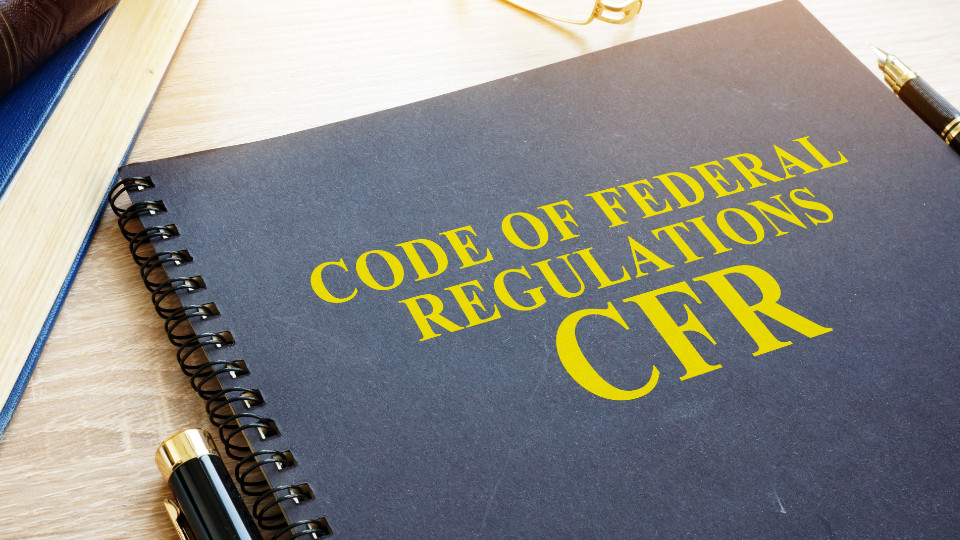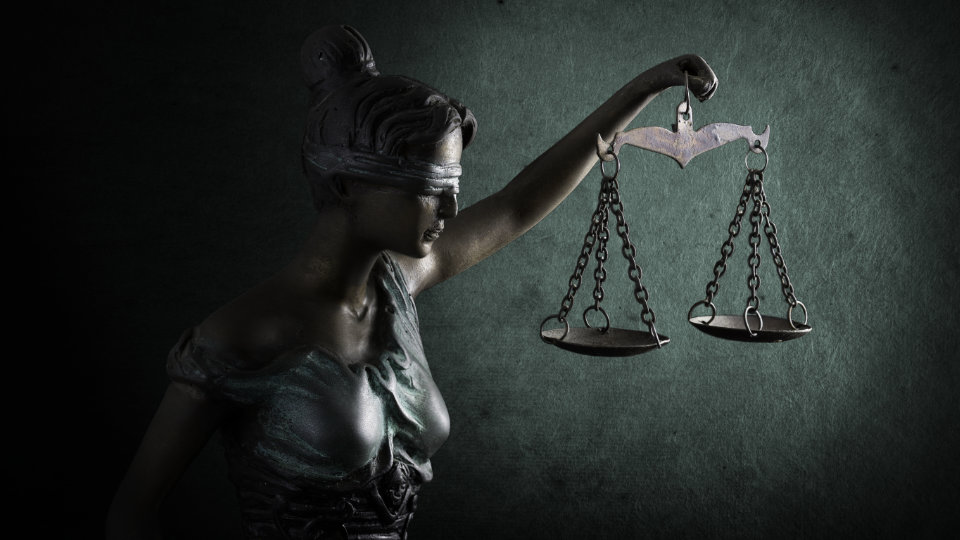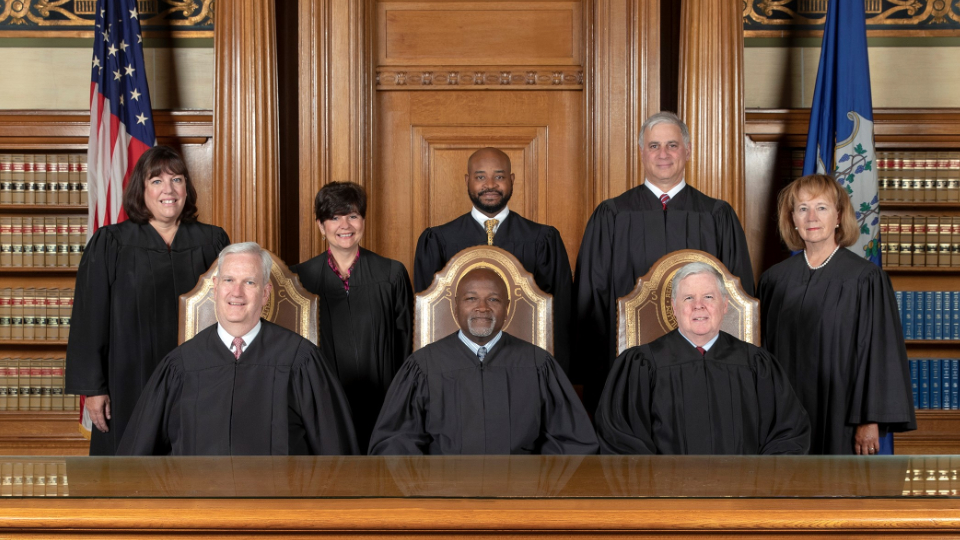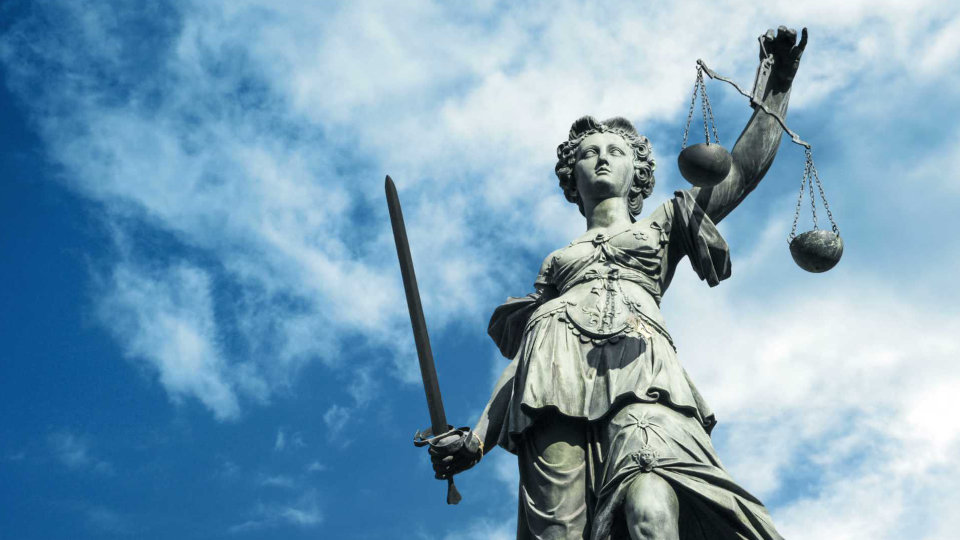Introduction
How Did We Get Here?

Why are schools—separate from police and courts—taking it upon themselves to investigate and determine guilt for what are often accusations of criminal behavior? What have schools and public officials been doing to make sure the process is thorough, impartial, and fair?
These are questions that accused students, their families, and the general public tend to ask when they first learn of Title IX grievance procedures, the process by which schools investigate and adjudicate sex-based misconduct such as sexual assault, harassment, stalking, dating violence.
This timeline will help answer these questions. It will reveal the legislative origins of Title IX, several high-impact court decisions that have shaped the litigation movements both for victims of harassment and of campus show trials, the burgeoning of compliance bureaucracy within academia, and the culture of our academic institutions that has contributed to all of the above.
While this timeline primarily concerns itself with fairness for accused students, it is necessary to see the other side of the coin as well: the necessity for students and teachers to be safe from harassment and violence. Without understanding both, it is impossible to get a clear picture. For that reason, we will make references to both throughout the timeline.
1972
Title IX is Signed Into Law
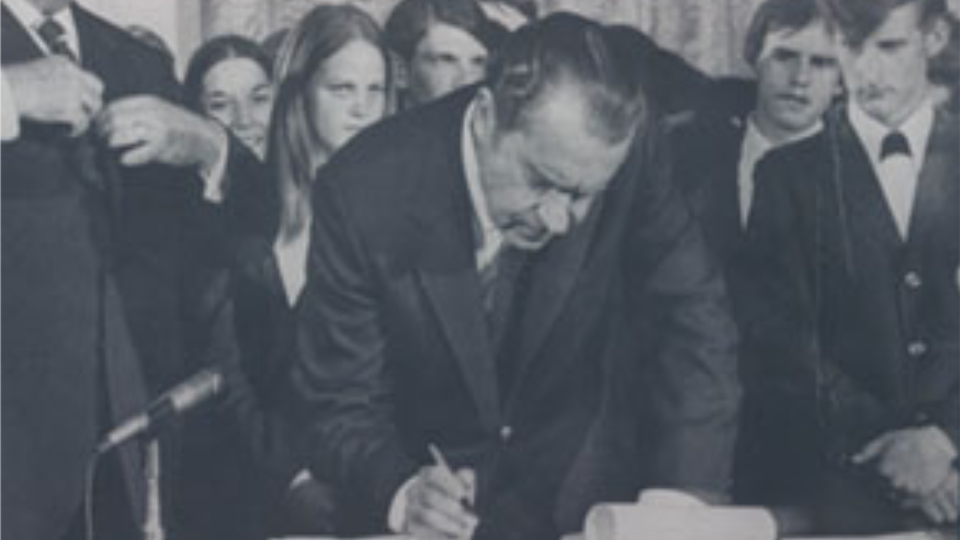
President Richard Nixon signed Title IX of the Education Amendments Act into law. This federal law provides that:
No person in the United States shall, on the basis of sex, be excluded from participation in, be denied the benefits of, or be subjected to discrimination under any education program or activity receiving Federal financial assistance.
On the surface, the law’s text is plainspoken and uncontroversial. Instead, it is the various interpretations of the law by schools, courts, legislatures, and federal agencies over the following decades that have provided controversy. How broadly, for example, should terms like “on the basis of sex,” “denial of benefits,” and “education program or activity” be defined?
1975
An Early SCOTUS Decision Favors Due Process

In Goss v. Lopez, the Supreme Court of the United States held that public school students accused of misconduct and facing suspensions less than ten days have, at minimum, the right to receive notice of the charges and the opportunity to be heard. Additionally, the court held that “Longer suspensions or expulsions for the remainder of the school term, or permanently, may require more formal procedures.” From the court’s opinion:
Due process requires…that the student be given oral or written notice of the charges against him and, if he denies them, an explanation of the evidence the authorities have and an opportunity to present his version….The 14th Amendment, as now applied to the States, protects against the State itself and all of its creatures — Boards of Education not excepted.
1979
The Department of Education is Created
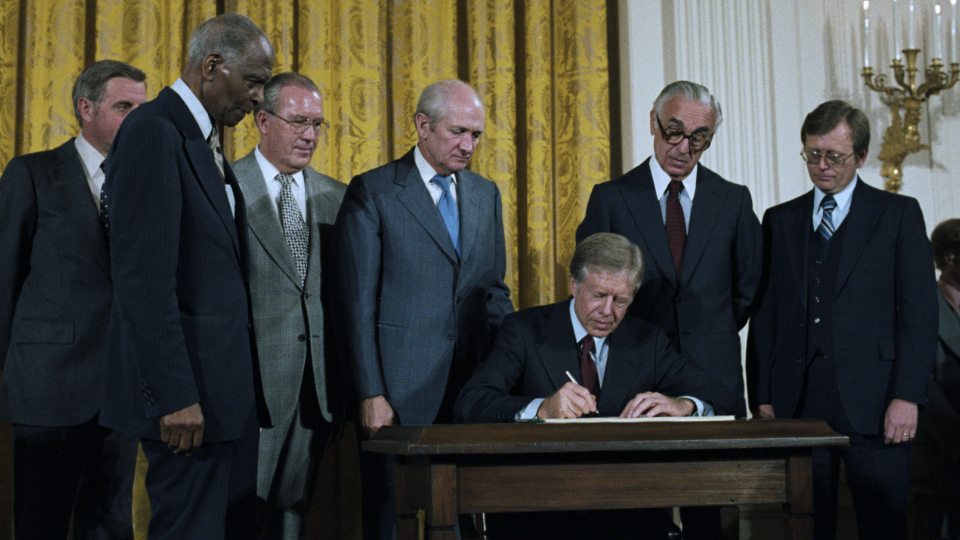
President Jimmy Carter signed the Department of Education Organization Act into law, combining several federal agencies to create the Department of Education (ED). The Department would quickly expand its staff and operations to address civil rights-related matters, including Title IX.
1990
Following Tragedy, a New Federal Law

Following public outcry over the rape and murder of Jeanne Clery at Lehigh University, The Jeanne Clery Disclosure of Campus Security Policy and Campus Crime Statistics Act (“Clery Act”) was signed into law by President George H.W. Bush. This law requires schools that receive federal financial assistance to maintain and disclose information about crime on and near their campuses and punishes them with fines if they fail to do so. Currently, schools are fined $69,733 for each violation.
The Clery Act was one of many government actions that ramped up an increasingly complex compliance and risk management bureaucracy within educational institutions and set a trend of tying financial penalties to schools’ insufficient responses to safety concerns.
Jeanne Clery’s assailant Josoph H. Henry was initially sentenced to death by electric chair but successfully traded appeal rights for life in prison in 2002.
1994
First Major Title IX Accused Student Opinion in Circuit Court
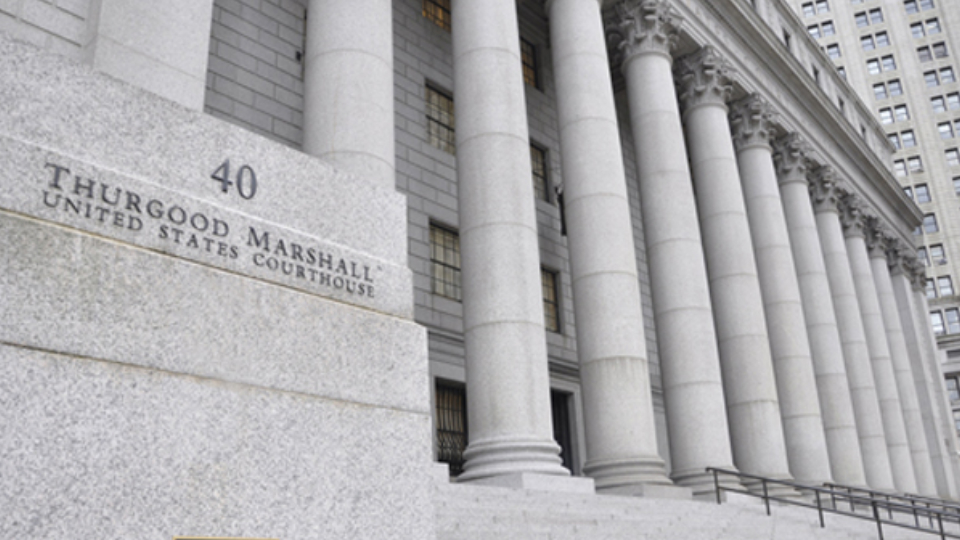
In Yusuf v. Vassar College—a decision much-cited later in accused student litigation—the Second Circuit held that “Title IX bars the imposition of university discipline where gender is a motivating factor in the decision to discipline.”
Dissident Feminists Raise Concern
Who Stole Feminism? by Christina Hoff-Sommers was published. This book exposed in great detail the anti-male bias, intellectual fraud (especially statistical exaggerations of gendered victimization and abuse), and illiberal perspectives (e.g., opposition to freedom of speech, equal treatment, and due process) among the more extreme feminist academics that had proliferated in humanities and certain administrative departments across the United States over the past two decades. The work of these ideologues would increasingly influence public policy, including education policy.
While this book and similar others raised grave concerns (see also Professing Feminism: Education and Indoctrination in Women’s Studies), it was not until the mid/late 2010s that the general public realized there was something grievously wrong in the culture of academic institutions.
1998
SCOTUS Decision Empowers Victims of Teacher-on-Student Harassment
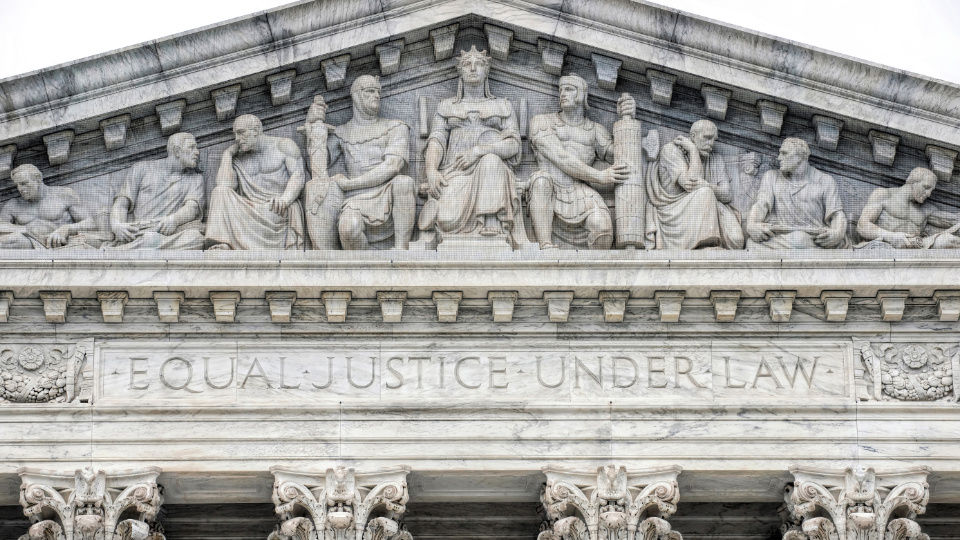
In Gebser v. Lago Vista Independent School District, the Supreme Court held that students have a private right of action against schools when a “school district official who at a minimum has authority to institute corrective measures on the district’s behalf has actual notice of, and is deliberately indifferent to, the teacher’s misconduct.”
1999
Landmark SCOTUS Decision Greenlights Litigation for Victims of Student-on-Student Harassment
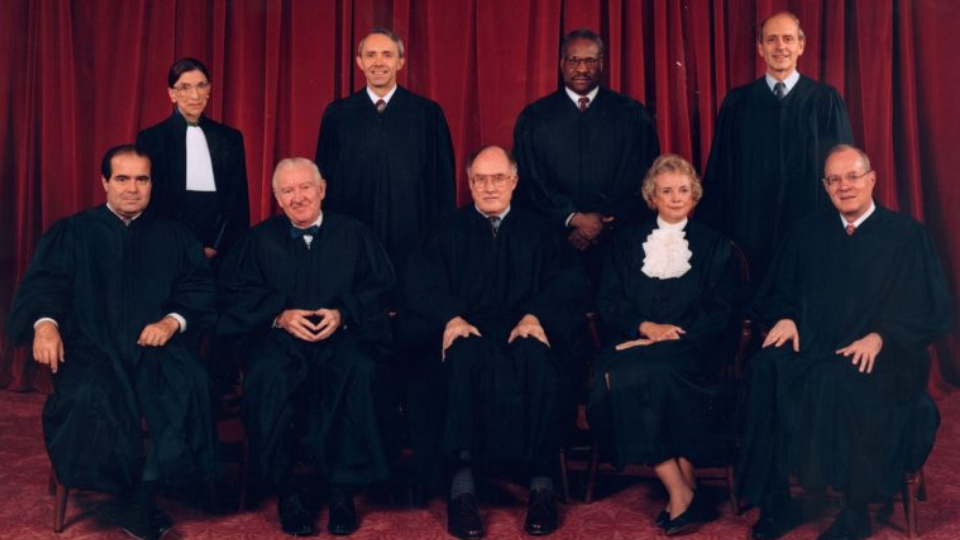
In Davis v. Monroe County Board of Education, the Supreme Court established a private right of action for victims, holding that schools that receive federal financial assistance are liable if they are deliberately indifferent after receiving actual knowledge of sexual harassment that is “so severe, pervasive, and objectively offensive that it can be said to deprive the victims of access to the educational opportunities or benefits provided by the school.”
Campus Civil Liberties Find a New Champion
Concerned with the increasing illiberal nature of academia, the nonprofit Foundation for Individual Rights in Education (later renamed Foundation for Individual Rights and Expression) was founded. FIRE would go on to become a national leader in promoting civil liberties in education and beyond.
2001
ED Solidifies Authority to Promote and Enforce Requirements in Title IX Misconduct Matters
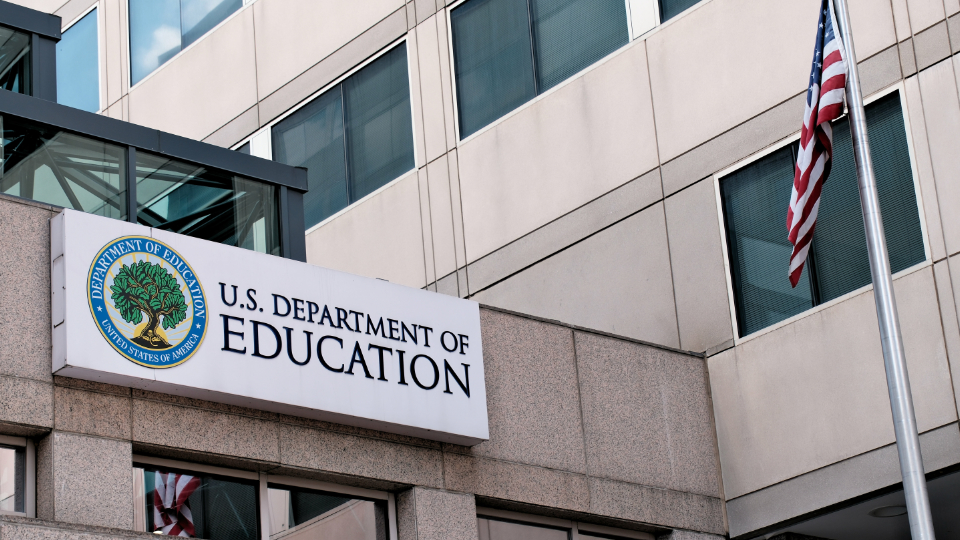
Citing Supreme Court decisions in Davis and Gebser, the Department of Education’s Office for Civil Rights issued new guidance establishing its authority to promote and enforce its own Title IX requirements on schools. From the guidance’s preamble:
The Court was explicit in Gebser and Davis that the liability standards established in those cases are limited to private actions for monetary damages. The Court acknowledged, by contrast, the power of Federal agencies, such as the Department, to “promulgate and enforce requirements that effectuate [Title IX’s] nondiscrimination mandate,” even in circumstances that would not give rise to a claim for money damages.
2006
Campus Extremism Reaches Fever Pitch
Starting in the 90s, campus anti-rape activism became increasingly extreme. Presumptions of guilt, ignoring or sneering at exculpatory evidence, and exhibiting a general hostility toward men as a group became common. At some campuses, for example, male students would be forced to attend “She Fears You” orientations where they would learn how their mere existence on campus stoked fear among women. At others, posters were distributed with spiteful “reminders” to men not to rape women.
In a high-profile example at Duke University in 2006, three lacrosse players were falsely accused of raping a black stripper at a party. Protestors carried a banner reading “castrate” outside the frat house where the “assault” occurred. They also distributed wanted posters and surrounded the accused on campus while repeatedly shouting to confess. Eighty-eight professors—all in the humanities—signed their names to a statement siding with the accuser largely based on sex and race stereotypes. Their statement was published in the campus magazine. Professors also modified their lessons and used classroom time to further harass the lacrosse players. The professors were called upon to apologize after the ordeal was over; instead, they issued a “clarifying letter” in which they refused to apologize.
Professor Susan Thorne, a Duke professor who had become close to the lacrosse players and signed the original statement, privately apologized to one of them and offered to make it up by issuing a statement in the campus newspaper supporting a more dispassionate approach to such allegations. She did not. Instead, she signed the “clarifying letter,” refusing to apologize. Stunned, the lacrosse player asked her why. Professor Thorne replied that she had “given the matter considerable thought” but felt forced to sign it because if she did not “my voice won’t count for much in my world.”
2008
SAVE is Founded
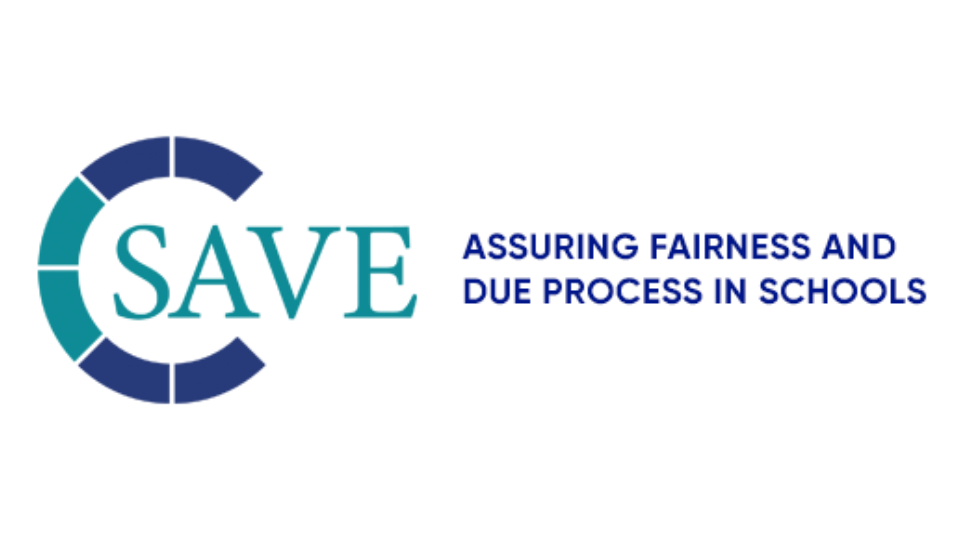
The nonprofit Stop Abusive and Violent Environments was founded to address bias and civil liberties violations in public policy regarding abuse. SAVE would later be influential in lobbing government and coordinating coalitions of advocacy organizations.
2011
The Era of Kangaroo Courts Begins
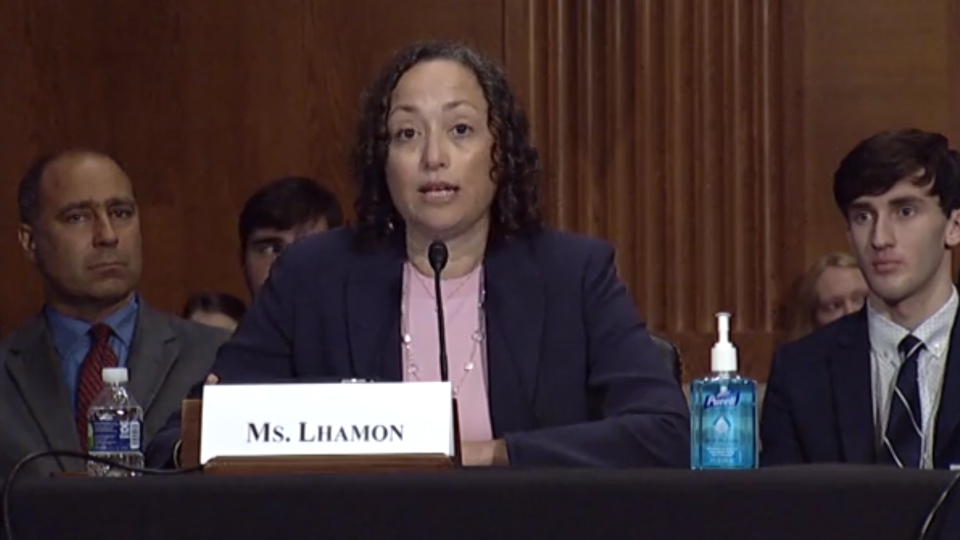
On April 4, the Department of Education issued “guidance” describing schools’ broad obligations to respond to allegations of sexual harassment and assault. This guidance document quickly became known as the “Dear Colleague letter.”
Despite forgoing a rulemaking process by which regulation on Title IX grievance procedures could be officially established, ED illegitimately treated this sub-regulatory guidance with the force of law. It threatened schools with the nuclear penalty of revoking all federal funding if they failed to comply, and it quickly ramped up investigations of schools suspected of failing to heed its “guidance.”
ED soon published a list of schools under investigation on its website. This list was widely circulated in the media, inflicting reputational damage on schools under investigation and stoking fear among administrators that their school could be added to the list. Campus anti-rape activism, which had become extreme long prior,
Driven by panic, schools overcorrected. Title IX proceedings quickly became shams in which guilt was often predetermined. Accused students were frequently given little or no notice of the allegations, were not allowed to submit witnesses in their defense or review the evidence against them, and were not allowed to have questions posed to their accusers. Too often, decision-makers had critical conflicts or biases that prevented them from rendering an accurate determination.
Association of Title IX Administrators (ATIXA) is Founded
An organization that currently boasts over 13,000 active members in education and education-related organizations, ATIXA was founded to provide training and model policies to schools to help them meet compliance requirements.
2013
The Litigation Movement for Accused Students Begins
For the first time in U.S. history, lawsuits by higher ed students alleging their rights were violated in Title IX grievance procedures broke into the double digits. Fourteen lawsuits were filed by accused students alleging that schools violated their rights in Title IX grievance procedures. Filings of new lawsuits would increase substantially every year for the next five years.
Many new attorneys found assisting accused students to be a viable career path, and many attorneys and advocates gathered to discuss potential solutions in private and public forums.
Advocacy for Accused Students Begins in Earnest
Three organizations that addressed fairness for accused students were formed:
- Families Advocating for Campus Equality, based in Indiana. Founded by three moms of accused students, this organization focuses on providing support groups for students and families experiencing the ordeal of a Title IX investigation. FACE also provides advocacy regarding legislation and regulation.
- A Voice for Male Students (later renamed Title IX for All), founded by a former higher ed instructor concerned with bias and extremism in academia. Beginning as a vlogging/blogging platform for the purposes of awareness and advocacy, it soon incorporated database technology to provide the general public convenient methods to research litigation, OCR investigations, attorneys, and regulation on Title IX matters. The organization also conducts advocacy and advises accused students.
- NCFM-Carolinas, or NCFMC (now inactive), based in North Carolina. NCFMC provided advocacy and support for accused students.
2016
Pathbreaking Circuit Court Opinion on Bias in Title IX Grievance Procedures

At Columbia University, an accused student was found responsible despite the evidence substantially favoring him. Columbia refused to interview witnesses he identified for his defense and refused to follow provisions of its own policies designed to provide fairness to accused students. The student then sued.
In Doe v. Columbia, the Second Circuit held in favor of Doe’s Title IX claim at the motion to dismiss stage, stating that:
When the evidence substantially favors one party’s version of a disputed matter, but an evaluator forms a conclusion in favor of the other side (without an apparent reason based in the evidence), it is plausible to infer …that the evaluator has been influenced by bias.
This decision went on to influence favorable appellate decisions in Menaker v. Hofstra and, in turn, the Sixth Circuit’s Doe v. Oberlin College (“when the degree of doubt passes from ‘articulable’ to grave, the merits of the decision itself, as a matter of common sense, can support an inference of sex bias”).
2017
The Jig is Up: 2011 “Dear Colleague Letter” Withdrawn
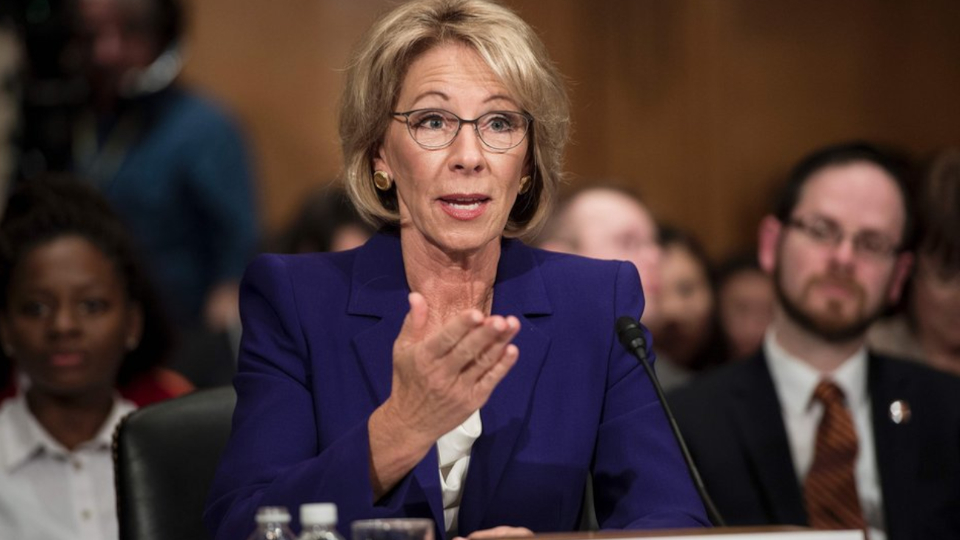
With a new presidential administration in place, Secretary of Education Betsy DeVos withdrew the 2011 “Dear Colleague Letter” and issued interim guidance. Her letter notifying schools stated in part:
Legal commentators have criticized the 2011 Letter and the 2014 Questions and Answers for placing “improper pressure upon universities to adopt procedures that do not afford fundamental fairness.” As a result, many schools have established procedures for resolving allegations that “lack the most basic elements of fairness and due process, are overwhelmingly stacked against the accused, and are in no way required by Title IX law or regulation.
The issuance of this letter and interim guidance signaled that the “wild west” era of campus show trials would not be enabled by the current administration.
ATIXA Whitepaper Provides State of the Union Address to Title IX Administrators
A remarkable whitepaper by the Association of Title IX Administrators provided a warning and a candid summary of trends in Title IX litigation, stating in part:
The field is losing case after case in federal court on what should be very basic due process protections. Never before have colleges been losing more cases than they are winning, but that is the trend as we write this….
The field is being hammered by an unprecedented wave of litigation, and higher education is losing! Do you remember the days when judges were deferential to the internal disciplinary decisions of college administrators? If those days are rapidly receding or are gone, you have to ask yourselves what role you have played in that…
It is imperative that you self-correct and find a golden mean or middle path on this issue. You are sowing the seeds of your own destruction.
2018
Annual Filings of Accused Student Lawsuits Reach Their Peak
At least 126 lawsuits by students alleging their rights were violated in Title IX grievance procedures were filed in state and federal court in 2018, the highest number ever recorded. Prior to 2009, lawsuits by accused students averaged one per year.
The Sixth Circuit Expands Due Process With Hearings and Cross-Examination
Represented by women’s rights attorney Deborah Gordon, accused student John Doe sued the University of Michigan after it found him responsible for rape in a case that largely depended on determining which party was more credible. UM had denied Doe the right to a hearing and to cross-examine his accuser. In Doe v. Baum, the Sixth Circuit held as follows:
If a public university has to choose between competing narratives to resolve a case, the university must give the accused student or his agent an opportunity to cross-examine the accuser and adverse witnesses in the presence of a neutral fact-finder
First of Several Class Action Lawsuits Filed
The of three class action lawsuits for accused students, all filed between 2018-2019, was filed this year. While two of these lawsuits found some measure of success for their individual plaintiffs, the class action classification was eventually struck from all three lawsuits.
2019
The Seventh Circuit Broadens the Path for Accused Students Alleging Sex Discrimination
See 23:53-24:30 of the above video for critical context on Purdue’s credibility determinations.
Circuit courts have become accustomed to using doctrinal tests to evaluate sex discrimination claims under Title IX. Such doctrines include:
- Erroneous outcome, where the accused was wrongly found responsible
- Selective enforcement, where the punishment or the decision to investigate at all hinged on the student’s sex
- Archaic assumptions, where a school’s actions were improperly influenced by outdated sex stereotypes
- Deliberate indifference, in which a school does not respond promptly and appropriately, in light of the known circumstances, to complaints of sexual harassment
In Doe v. Purdue, future SCOTUS Justice Amy Coney Barrett wrote in the court’s unanimous opinion:
We see no need to superimpose doctrinal tests on the statute. All of these categories simply describe ways in which a plaintiff might show that sex was a motivating factor in a university’s decision to discipline a student. We prefer to ask the question more directly: do the alleged facts, if true, raise a plausible inference that the university discriminated against John “on the basis of sex”?
The Seventh Circuit held that Doe’s motion to dismiss plausibly alleged that gender bias had infected Purdue’s Title IX process due to the panel of three decision-makers crediting his accuser despite never speaking to her or reading words she had written. Two decision-makers had not read the investigation report, and the only knowledge they had of the accusation was a summary/paraphrasing of the accusation by a sex-assault victim advocate that had a history of posting anti-male content on social media.
This “Purdue standard” in evaluating accused students’ sex discrimination claims was later adopted by other circuits, including the Tenth Circuit when rendering summary judgment decisions in Doe v. University of Denver.
2020
New Title IX Regulations Expand Fairness for Accused Students Nationwide
New Title IX regulations from the Trump administration went into effect, extensively fleshing out the rights of complainants and respondents in Title IX grievance procedures. Schools would be required to provide the parties with full notice of the allegations, hearings and cross-examination (except in lower ed cases), the right to appeal, the right to review and respond to evidence, and so forth.
Five lawsuits were filed in federal court seeking to overturn the regulations or prevent them from going into effect. All five failed.
2022
The Masks Come Off Pro-Accuser Organizations, Senate Democrats Oppose Due Process
With President Biden elected the year prior, the Department of Education initiated a new rulemaking process with the goal of rolling back several of the due process protections instituted by the previous administration. Seizing the opportunity, a coalition of seventy-eight prominent anti-sexual violence organizations submitted a letter to the Department demanding that any new Title IX regulations should remove the presumption of innocence for accused students. Separately, a coalition of nineteen Democrat Senators signed their names to a letter pressuring the ED to do the same.
In Khan v. Yale, fifteen “survivor” organizations filed an amicus brief demanding immunity from defamation suits for accusers who make false rape accusations, even those whose false accusations are the product of deliberate malice.
In Doe v. UC-Santa Barbara, a coalition of ten prominent “survivor” organizations demanded that rape accusers have a right to compel schools to preserve a “guilty” finding and the school’s punishment against accused students, even when courts later determine those guilty findings and punishments were the result of unconstitutional proceedings.
These actions exposed what has long been an issue with such advocates: many are deeply hostile to due process, care little for the truth or falsity of the allegations or reliable fact-finding procedures, and prioritize above all these things the punishment of the accused. Many also believe that false rape accusers should be allowed to harm their victims with impunity, casting doubt on their trumpeted commitments to “ending abuse.” Just as we saw in the infamous Duke lacrosse false rape case, their story should be a cautionary tale for advocates to avoid becoming, in their single-minded pursuit of a narrow goal, the embodiment of the evils they claim to oppose.
While these views (which would be unpalatable to the general public) have long been hidden from the public underneath a veneer of organizational polish and skilled rhetoric, in 2022 these organizations removed their masks and demanded government action consistent with their views.
Largest-Ever Jury Award to Student Suing False Accusers for Defamation
Clemson University student Andrew Pampu was awarded $5.3 million (later reduced) by a jury after proving that his accuser Erin Wingo and her boyfriend Colin Gahagan conspired to falsely accuse him of rape and instigated a civil conspiracy to destroy his education and reputation. From an Inside Higher Ed article:
“That’s a chilling award,” said Peter Lake, Charles A. Dana Chair and director of the Center for Excellence in Higher Education Law and Policy at Stetson University College of Law. “That kind of award, if it stands and isn’t remitted in some way, is very impactful on college business and insurance operations. I would assume that every college in South Carolina is meeting this week to talk about the implications of this. And what’s going to start happening, if you get more of these verdicts, is more Title IX systems will be literally supervised by attorneys. Colleges will have teams of lawyers.”
2023
Connecticut Supreme Court Deals Major Blow to Advocates for Accusers, Rebukes Yale’s Sham Proceedings
In Khan v. Yale, a coalition of pro-accuser organizations filed briefs demanding immunity for accusers from defamation suits, explicitly including a demand for immunity for those whose allegations are both false and motivated by malice. Seeking refuge for such accusers, they argued that their accusations in a higher education setting were privileged by the quasi-judicial proceedings found in Title IX grievance procedures, thus granting accusers immunity.
Connecticut Supreme Court, however, held that because Yale’s misconduct proceedings failed to provide “sufficient procedural safeguards to ensure reliability and to promote fundamental fairness,” Yale’s process failed to meet the definition of a quasi-judicial proceeding for the purposes of providing absolute immunity to accusers from defamation suits.
The decision was not a simple refutation of the claims of accuser advocates. The panel of seven Democrat-nominated judges went much further, listing defect after defect of Yale’s proceedings and holding that their collective absence “militates against a determination that the proceeding had adequate safeguards to ensure reliability and promote fundamental fairness.”
2024
Two Steps Forward, One Step Back: New Regulations Roll Back Due Process, But Are Blocked in Half the Country
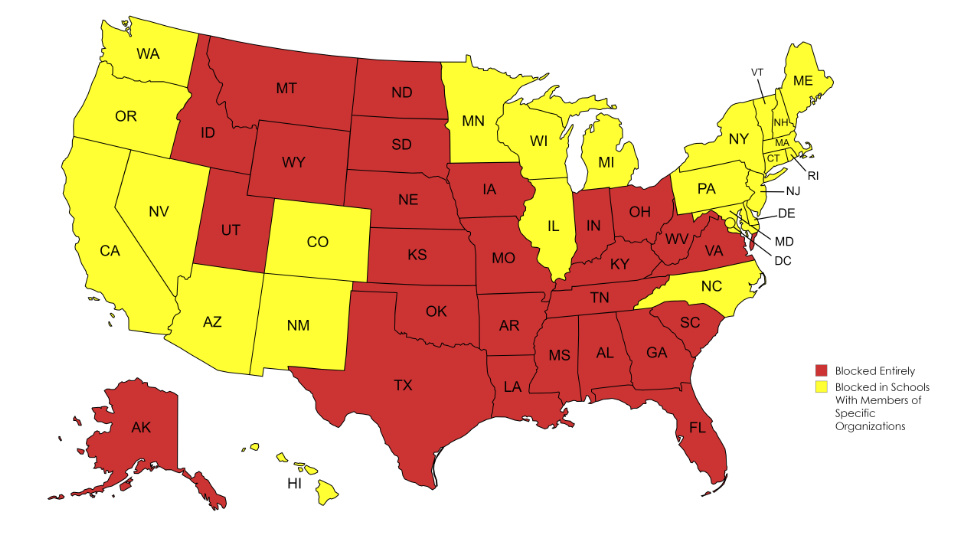
The Biden administration’s new Title IX regulations go into effect, reducing the rights of accused students to view and respond to evidence and cross-examine their accusers through an advisor in the presence of a neutral decision-maker.
The regulations also changed the definition of hostile environment sexual harassment, rendering it more broad, vague, and subjective. Students will no longer, by default, be provided access to school training materials to review them for bias. The regulations also expand the jurisdiction of schools to investigate conduct that falls outside their educational programs or activities, meaning that schools will be able to police misconduct that allegedly occurred off-campus, in other states, or in other countries.
Cumulatively, these changes will ensure that more students are investigated and are erroneously found responsible for misconduct. However, as of October 2024, numerous injunctions blocked these regulations in half the country. Whether, how long, or how broadly the regulations will remain will be the subject of an ongoing legal battle.
The Future
We will update this timeline as major events occur. In the meantime, consider viewing other key resources in our library.
Thank You for Reading
If you like what you have read, feel free to sign up for our newsletter here:
About the Author
Related Posts
Introduction
How Did We Get Here?

Why are schools—separate from police and courts—taking it upon themselves to investigate and determine guilt for what are often accusations of criminal behavior? What have schools and public officials been doing to make sure the process is thorough, impartial, and fair?
These are questions that accused students, their families, and the general public tend to ask when they first learn of Title IX grievance procedures, the process by which schools investigate and adjudicate sex-based misconduct such as sexual assault, harassment, stalking, dating violence.
This timeline will help answer these questions. It will reveal the legislative origins of Title IX, several high-impact court decisions that have shaped the litigation movements both for victims of harassment and of campus show trials, the burgeoning of compliance bureaucracy within academia, and the culture of our academic institutions that has contributed to all of the above.
While this timeline primarily concerns itself with fairness for accused students, it is necessary to see the other side of the coin as well: the necessity for students and teachers to be safe from harassment and violence. Without understanding both, it is impossible to get a clear picture. For that reason, we will make references to both throughout the timeline.
1972
Title IX is Signed Into Law

President Richard Nixon signed Title IX of the Education Amendments Act into law. This federal law provides that:
No person in the United States shall, on the basis of sex, be excluded from participation in, be denied the benefits of, or be subjected to discrimination under any education program or activity receiving Federal financial assistance.
On the surface, the law’s text is plainspoken and uncontroversial. Instead, it is the various interpretations of the law by schools, courts, legislatures, and federal agencies over the following decades that have provided controversy. How broadly, for example, should terms like “on the basis of sex,” “denial of benefits,” and “education program or activity” be defined?
1975
An Early SCOTUS Decision Favors Due Process

In Goss v. Lopez, the Supreme Court of the United States held that public school students accused of misconduct and facing suspensions less than ten days have, at minimum, the right to receive notice of the charges and the opportunity to be heard. Additionally, the court held that “Longer suspensions or expulsions for the remainder of the school term, or permanently, may require more formal procedures.” From the court’s opinion:
Due process requires…that the student be given oral or written notice of the charges against him and, if he denies them, an explanation of the evidence the authorities have and an opportunity to present his version….The 14th Amendment, as now applied to the States, protects against the State itself and all of its creatures — Boards of Education not excepted.
1979
The Department of Education is Created

President Jimmy Carter signed the Department of Education Organization Act into law, combining several federal agencies to create the Department of Education (ED). The Department would quickly expand its staff and operations to address civil rights-related matters, including Title IX.
1990
Following Tragedy, a New Federal Law

Following public outcry over the rape and murder of Jeanne Clery at Lehigh University, The Jeanne Clery Disclosure of Campus Security Policy and Campus Crime Statistics Act (“Clery Act”) was signed into law by President George H.W. Bush. This law requires schools that receive federal financial assistance to maintain and disclose information about crime on and near their campuses and punishes them with fines if they fail to do so. Currently, schools are fined $69,733 for each violation.
The Clery Act was one of many government actions that ramped up an increasingly complex compliance and risk management bureaucracy within educational institutions and set a trend of tying financial penalties to schools’ insufficient responses to safety concerns.
Jeanne Clery’s assailant Josoph H. Henry was initially sentenced to death by electric chair but successfully traded appeal rights for life in prison in 2002.
1994
First Major Title IX Accused Student Opinion in Circuit Court

In Yusuf v. Vassar College—a decision much-cited later in accused student litigation—the Second Circuit held that “Title IX bars the imposition of university discipline where gender is a motivating factor in the decision to discipline.”
Dissident Feminists Raise Concern
Who Stole Feminism? by Christina Hoff-Sommers was published. This book exposed in great detail the anti-male bias, intellectual fraud (especially statistical exaggerations of gendered victimization and abuse), and illiberal perspectives (e.g., opposition to freedom of speech, equal treatment, and due process) among the more extreme feminist academics that had proliferated in humanities and certain administrative departments across the United States over the past two decades. The work of these ideologues would increasingly influence public policy, including education policy.
While this book and similar others raised grave concerns (see also Professing Feminism: Education and Indoctrination in Women’s Studies), it was not until the mid/late 2010s that the general public realized there was something grievously wrong in the culture of academic institutions.
1998
SCOTUS Decision Empowers Victims of Teacher-on-Student Harassment

In Gebser v. Lago Vista Independent School District, the Supreme Court held that students have a private right of action against schools when a “school district official who at a minimum has authority to institute corrective measures on the district’s behalf has actual notice of, and is deliberately indifferent to, the teacher’s misconduct.”
1999
Landmark SCOTUS Decision Greenlights Litigation for Victims of Student-on-Student Harassment

In Davis v. Monroe County Board of Education, the Supreme Court established a private right of action for victims, holding that schools that receive federal financial assistance are liable if they are deliberately indifferent after receiving actual knowledge of sexual harassment that is “so severe, pervasive, and objectively offensive that it can be said to deprive the victims of access to the educational opportunities or benefits provided by the school.”
Campus Civil Liberties Find a New Champion
Concerned with the increasing illiberal nature of academia, the nonprofit Foundation for Individual Rights in Education (later renamed Foundation for Individual Rights and Expression) was founded. FIRE would go on to become a national leader in promoting civil liberties in education and beyond.
2001
ED Solidifies Authority to Promote and Enforce Requirements in Title IX Misconduct Matters

Citing Supreme Court decisions in Davis and Gebser, the Department of Education’s Office for Civil Rights issued new guidance establishing its authority to promote and enforce its own Title IX requirements on schools. From the guidance’s preamble:
The Court was explicit in Gebser and Davis that the liability standards established in those cases are limited to private actions for monetary damages. The Court acknowledged, by contrast, the power of Federal agencies, such as the Department, to “promulgate and enforce requirements that effectuate [Title IX’s] nondiscrimination mandate,” even in circumstances that would not give rise to a claim for money damages.
2006
Campus Extremism Reaches Fever Pitch
Starting in the 90s, campus anti-rape activism became increasingly extreme. Presumptions of guilt, ignoring or sneering at exculpatory evidence, and exhibiting a general hostility toward men as a group became common. At some campuses, for example, male students would be forced to attend “She Fears You” orientations where they would learn how their mere existence on campus stoked fear among women. At others, posters were distributed with spiteful “reminders” to men not to rape women.
In a high-profile example at Duke University in 2006, three lacrosse players were falsely accused of raping a black stripper at a party. Protestors carried a banner reading “castrate” outside the frat house where the “assault” occurred. They also distributed wanted posters and surrounded the accused on campus while repeatedly shouting to confess. Eighty-eight professors—all in the humanities—signed their names to a statement siding with the accuser largely based on sex and race stereotypes. Their statement was published in the campus magazine. Professors also modified their lessons and used classroom time to further harass the lacrosse players. The professors were called upon to apologize after the ordeal was over; instead, they issued a “clarifying letter” in which they refused to apologize.
Professor Susan Thorne, a Duke professor who had become close to the lacrosse players and signed the original statement, privately apologized to one of them and offered to make it up by issuing a statement in the campus newspaper supporting a more dispassionate approach to such allegations. She did not. Instead, she signed the “clarifying letter,” refusing to apologize. Stunned, the lacrosse player asked her why. Professor Thorne replied that she had “given the matter considerable thought” but felt forced to sign it because if she did not “my voice won’t count for much in my world.”
2008
SAVE is Founded

The nonprofit Stop Abusive and Violent Environments was founded to address bias and civil liberties violations in public policy regarding abuse. SAVE would later be influential in lobbing government and coordinating coalitions of advocacy organizations.
2011
The Era of Kangaroo Courts Begins

On April 4, the Department of Education issued “guidance” describing schools’ broad obligations to respond to allegations of sexual harassment and assault. This guidance document quickly became known as the “Dear Colleague letter.”
Despite forgoing a rulemaking process by which regulation on Title IX grievance procedures could be officially established, ED illegitimately treated this sub-regulatory guidance with the force of law. It threatened schools with the nuclear penalty of revoking all federal funding if they failed to comply, and it quickly ramped up investigations of schools suspected of failing to heed its “guidance.”
ED soon published a list of schools under investigation on its website. This list was widely circulated in the media, inflicting reputational damage on schools under investigation and stoking fear among administrators that their school could be added to the list. Campus anti-rape activism, which had become extreme long prior,
Driven by panic, schools overcorrected. Title IX proceedings quickly became shams in which guilt was often predetermined. Accused students were frequently given little or no notice of the allegations, were not allowed to submit witnesses in their defense or review the evidence against them, and were not allowed to have questions posed to their accusers. Too often, decision-makers had critical conflicts or biases that prevented them from rendering an accurate determination.
Association of Title IX Administrators (ATIXA) is Founded
An organization that currently boasts over 13,000 active members in education and education-related organizations, ATIXA was founded to provide training and model policies to schools to help them meet compliance requirements.
2013
The Litigation Movement for Accused Students Begins
For the first time in U.S. history, lawsuits by higher ed students alleging their rights were violated in Title IX grievance procedures broke into the double digits. Fourteen lawsuits were filed by accused students alleging that schools violated their rights in Title IX grievance procedures. Filings of new lawsuits would increase substantially every year for the next five years.
Many new attorneys found assisting accused students to be a viable career path, and many attorneys and advocates gathered to discuss potential solutions in private and public forums.
Advocacy for Accused Students Begins in Earnest
Three organizations that addressed fairness for accused students were formed:
- Families Advocating for Campus Equality, based in Indiana. Founded by three moms of accused students, this organization focuses on providing support groups for students and families experiencing the ordeal of a Title IX investigation. FACE also provides advocacy regarding legislation and regulation.
- A Voice for Male Students (later renamed Title IX for All), founded by a former higher ed instructor concerned with bias and extremism in academia. Beginning as a vlogging/blogging platform for the purposes of awareness and advocacy, it soon incorporated database technology to provide the general public convenient methods to research litigation, OCR investigations, attorneys, and regulation on Title IX matters. The organization also conducts advocacy and advises accused students.
- NCFM-Carolinas, or NCFMC (now inactive), based in North Carolina. NCFMC provided advocacy and support for accused students.
2016
Pathbreaking Circuit Court Opinion on Bias in Title IX Grievance Procedures

At Columbia University, an accused student was found responsible despite the evidence substantially favoring him. Columbia refused to interview witnesses he identified for his defense and refused to follow provisions of its own policies designed to provide fairness to accused students. The student then sued.
In Doe v. Columbia, the Second Circuit held in favor of Doe’s Title IX claim at the motion to dismiss stage, stating that:
When the evidence substantially favors one party’s version of a disputed matter, but an evaluator forms a conclusion in favor of the other side (without an apparent reason based in the evidence), it is plausible to infer …that the evaluator has been influenced by bias.
This decision went on to influence favorable appellate decisions in Menaker v. Hofstra and, in turn, the Sixth Circuit’s Doe v. Oberlin College (“when the degree of doubt passes from ‘articulable’ to grave, the merits of the decision itself, as a matter of common sense, can support an inference of sex bias”).
2017
The Jig is Up: 2011 “Dear Colleague Letter” Withdrawn

With a new presidential administration in place, Secretary of Education Betsy DeVos withdrew the 2011 “Dear Colleague Letter” and issued interim guidance. Her letter notifying schools stated in part:
Legal commentators have criticized the 2011 Letter and the 2014 Questions and Answers for placing “improper pressure upon universities to adopt procedures that do not afford fundamental fairness.” As a result, many schools have established procedures for resolving allegations that “lack the most basic elements of fairness and due process, are overwhelmingly stacked against the accused, and are in no way required by Title IX law or regulation.
The issuance of this letter and interim guidance signaled that the “wild west” era of campus show trials would not be enabled by the current administration.
ATIXA Whitepaper Provides State of the Union Address to Title IX Administrators
A remarkable whitepaper by the Association of Title IX Administrators provided a warning and a candid summary of trends in Title IX litigation, stating in part:
The field is losing case after case in federal court on what should be very basic due process protections. Never before have colleges been losing more cases than they are winning, but that is the trend as we write this….
The field is being hammered by an unprecedented wave of litigation, and higher education is losing! Do you remember the days when judges were deferential to the internal disciplinary decisions of college administrators? If those days are rapidly receding or are gone, you have to ask yourselves what role you have played in that…
It is imperative that you self-correct and find a golden mean or middle path on this issue. You are sowing the seeds of your own destruction.
2018
Annual Filings of Accused Student Lawsuits Reach Their Peak
At least 126 lawsuits by students alleging their rights were violated in Title IX grievance procedures were filed in state and federal court in 2018, the highest number ever recorded. Prior to 2009, lawsuits by accused students averaged one per year.
The Sixth Circuit Expands Due Process With Hearings and Cross-Examination
Represented by women’s rights attorney Deborah Gordon, accused student John Doe sued the University of Michigan after it found him responsible for rape in a case that largely depended on determining which party was more credible. UM had denied Doe the right to a hearing and to cross-examine his accuser. In Doe v. Baum, the Sixth Circuit held as follows:
If a public university has to choose between competing narratives to resolve a case, the university must give the accused student or his agent an opportunity to cross-examine the accuser and adverse witnesses in the presence of a neutral fact-finder
First of Several Class Action Lawsuits Filed
The of three class action lawsuits for accused students, all filed between 2018-2019, was filed this year. While two of these lawsuits found some measure of success for their individual plaintiffs, the class action classification was eventually struck from all three lawsuits.
2019
The Seventh Circuit Broadens the Path for Accused Students Alleging Sex Discrimination
See 23:53-24:30 of the above video for critical context on Purdue’s credibility determinations.
Circuit courts have become accustomed to using doctrinal tests to evaluate sex discrimination claims under Title IX. Such doctrines include:
- Erroneous outcome, where the accused was wrongly found responsible
- Selective enforcement, where the punishment or the decision to investigate at all hinged on the student’s sex
- Archaic assumptions, where a school’s actions were improperly influenced by outdated sex stereotypes
- Deliberate indifference, in which a school does not respond promptly and appropriately, in light of the known circumstances, to complaints of sexual harassment
In Doe v. Purdue, future SCOTUS Justice Amy Coney Barrett wrote in the court’s unanimous opinion:
We see no need to superimpose doctrinal tests on the statute. All of these categories simply describe ways in which a plaintiff might show that sex was a motivating factor in a university’s decision to discipline a student. We prefer to ask the question more directly: do the alleged facts, if true, raise a plausible inference that the university discriminated against John “on the basis of sex”?
The Seventh Circuit held that Doe’s motion to dismiss plausibly alleged that gender bias had infected Purdue’s Title IX process due to the panel of three decision-makers crediting his accuser despite never speaking to her or reading words she had written. Two decision-makers had not read the investigation report, and the only knowledge they had of the accusation was a summary/paraphrasing of the accusation by a sex-assault victim advocate that had a history of posting anti-male content on social media.
This “Purdue standard” in evaluating accused students’ sex discrimination claims was later adopted by other circuits, including the Tenth Circuit when rendering summary judgment decisions in Doe v. University of Denver.
2020
New Title IX Regulations Expand Fairness for Accused Students Nationwide
New Title IX regulations from the Trump administration went into effect, extensively fleshing out the rights of complainants and respondents in Title IX grievance procedures. Schools would be required to provide the parties with full notice of the allegations, hearings and cross-examination (except in lower ed cases), the right to appeal, the right to review and respond to evidence, and so forth.
Five lawsuits were filed in federal court seeking to overturn the regulations or prevent them from going into effect. All five failed.
2022
The Masks Come Off Pro-Accuser Organizations, Senate Democrats Oppose Due Process
With President Biden elected the year prior, the Department of Education initiated a new rulemaking process with the goal of rolling back several of the due process protections instituted by the previous administration. Seizing the opportunity, a coalition of seventy-eight prominent anti-sexual violence organizations submitted a letter to the Department demanding that any new Title IX regulations should remove the presumption of innocence for accused students. Separately, a coalition of nineteen Democrat Senators signed their names to a letter pressuring the ED to do the same.
In Khan v. Yale, fifteen “survivor” organizations filed an amicus brief demanding immunity from defamation suits for accusers who make false rape accusations, even those whose false accusations are the product of deliberate malice.
In Doe v. UC-Santa Barbara, a coalition of ten prominent “survivor” organizations demanded that rape accusers have a right to compel schools to preserve a “guilty” finding and the school’s punishment against accused students, even when courts later determine those guilty findings and punishments were the result of unconstitutional proceedings.
These actions exposed what has long been an issue with such advocates: many are deeply hostile to due process, care little for the truth or falsity of the allegations or reliable fact-finding procedures, and prioritize above all these things the punishment of the accused. Many also believe that false rape accusers should be allowed to harm their victims with impunity, casting doubt on their trumpeted commitments to “ending abuse.” Just as we saw in the infamous Duke lacrosse false rape case, their story should be a cautionary tale for advocates to avoid becoming, in their single-minded pursuit of a narrow goal, the embodiment of the evils they claim to oppose.
While these views (which would be unpalatable to the general public) have long been hidden from the public underneath a veneer of organizational polish and skilled rhetoric, in 2022 these organizations removed their masks and demanded government action consistent with their views.
Largest-Ever Jury Award to Student Suing False Accusers for Defamation
Clemson University student Andrew Pampu was awarded $5.3 million (later reduced) by a jury after proving that his accuser Erin Wingo and her boyfriend Colin Gahagan conspired to falsely accuse him of rape and instigated a civil conspiracy to destroy his education and reputation. From an Inside Higher Ed article:
“That’s a chilling award,” said Peter Lake, Charles A. Dana Chair and director of the Center for Excellence in Higher Education Law and Policy at Stetson University College of Law. “That kind of award, if it stands and isn’t remitted in some way, is very impactful on college business and insurance operations. I would assume that every college in South Carolina is meeting this week to talk about the implications of this. And what’s going to start happening, if you get more of these verdicts, is more Title IX systems will be literally supervised by attorneys. Colleges will have teams of lawyers.”
2023
Connecticut Supreme Court Deals Major Blow to Advocates for Accusers, Rebukes Yale’s Sham Proceedings
In Khan v. Yale, a coalition of pro-accuser organizations filed briefs demanding immunity for accusers from defamation suits, explicitly including a demand for immunity for those whose allegations are both false and motivated by malice. Seeking refuge for such accusers, they argued that their accusations in a higher education setting were privileged by the quasi-judicial proceedings found in Title IX grievance procedures, thus granting accusers immunity.
Connecticut Supreme Court, however, held that because Yale’s misconduct proceedings failed to provide “sufficient procedural safeguards to ensure reliability and to promote fundamental fairness,” Yale’s process failed to meet the definition of a quasi-judicial proceeding for the purposes of providing absolute immunity to accusers from defamation suits.
The decision was not a simple refutation of the claims of accuser advocates. The panel of seven Democrat-nominated judges went much further, listing defect after defect of Yale’s proceedings and holding that their collective absence “militates against a determination that the proceeding had adequate safeguards to ensure reliability and promote fundamental fairness.”
2024
Two Steps Forward, One Step Back: New Regulations Roll Back Due Process, But Are Blocked in Half the Country

The Biden administration’s new Title IX regulations go into effect, reducing the rights of accused students to view and respond to evidence and cross-examine their accusers through an advisor in the presence of a neutral decision-maker.
The regulations also changed the definition of hostile environment sexual harassment, rendering it more broad, vague, and subjective. Students will no longer, by default, be provided access to school training materials to review them for bias. The regulations also expand the jurisdiction of schools to investigate conduct that falls outside their educational programs or activities, meaning that schools will be able to police misconduct that allegedly occurred off-campus, in other states, or in other countries.
Cumulatively, these changes will ensure that more students are investigated and are erroneously found responsible for misconduct. However, as of October 2024, numerous injunctions blocked these regulations in half the country. Whether, how long, or how broadly the regulations will remain will be the subject of an ongoing legal battle.
The Future
We will update this timeline as major events occur. In the meantime, consider viewing other key resources in our library.
Thank You for Reading
If you like what you have read, feel free to sign up for our newsletter here:
About the Author
Related Posts
More from Title IX for All
Accused Students Database
Research due process and similar lawsuits by students accused of Title IX violations (sexual assault, harassment, dating violence, stalking, etc.) in higher education.
OCR Resolutions Database
Research resolved Title IX investigations of K-12 and postsecondary institutions by the Department of Education’s Office for Civil Rights (OCR).
Attorneys Directory
A basic directory for looking up Title IX attorneys, most of whom have represented parties in litigation by accused students.


